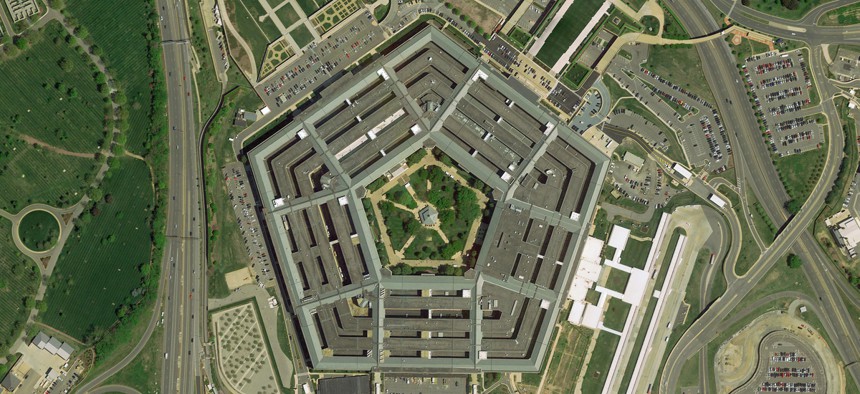Amazon: Pentagon Trying to ‘Gerrymander’ JEDI Corrective Action

gokturk_06/Shutterstock.com
Amazon Web Services said the Pentagon’s plan to fix the Joint Enterprise Defense Infrastructure cloud contract is not enough.
In a legal filing Tuesday, Amazon Web Services accused the Defense Department of attempting to “gerrymander” revisions to the Joint Enterprise Defense Infrastructure cloud contract it proposed to make earlier this month.
Amazon’s filing asks Judge Patricia Campbell-Smith to deny the Defense Department’s motion for a voluntary remand of 120 days to “reconsider its evaluation” of the lucrative JEDI cloud contract it awarded Microsoft in October. In the filing, Amazon argues the Defense Department’s proposed corrective action is too narrow and that “DoD does not meaningfully commit to reconsider the other evaluation errors identified in the protest.”
“The corrective action DoD proposes fails the tests of rationality and fairness, violates the broad discretion afforded an agency for addressing a procurement impropriety, and suggests that DoD seeks to take whatever corrective action is necessary to reaffirm its prior award to Microsoft despite the material defects the Court identified and DoD has now acknowledged,” Amazon said in the filing. “The Government should not be permitted to gerrymander the corrective action to preserve the illusion that Microsoft offered the lowest price while simultaneously perpetuating competitive impediments for AWS, the only offeror that submitted a compliant proposal eligible for award.”
The Pentagon’s motion for remand came after Campbell-Smith said Amazon was likely to succeed in proving the Pentagon made a material error evaluating Microsoft’s proposal regarding a “noncompliant storage solution.” In the judge’s unsealed opinion granting an injunction on work under JEDI, she evaluated only one of several evaluation flaws alleged by Amazon and did not address Amazon’s allegations of political interference by President Trump.
In its Tuesday filing, Amazon asked the court to require the Defense Department to reevaluate proposals “with respect to all of the errors identified by the protest” and to remove the constraint on both companies’ ability to revise their pricing.
“We’re pleased to see the DoD recognize the need to take corrective action, but we’re concerned that the proposed approach is not designed to provide a complete, fair, and effective re-evaluation,” an Amazon spokesperson told Nextgov in a statement. “Instead of addressing the breadth of problems in its proposed corrective action, the DoD’s proposal focuses only on providing Microsoft a do-over on its fatally flawed bid while preventing AWS from adjusting its own pricing in response to the DoD’s new storage criteria. This attempt to gerrymander the corrective action without fixing all of the serious flaws pointed out in our complaint raises significant questions.”
In a statement, Defense Department spokesperson Lt. Col. Robert Carver said the Pentagon "disagrees with the arguments Amazon makes in its response."
"As outlined in DOD's Motion for Voluntary Remand, we believe that the best and most reasonable path forward is to issue a solicitation amendment and accept limited proposal revisions before conducting a re-evaluation of both proposals," Carver said. "The Department maintains that the JEDI Cloud contract was awarded based upon a fair and unbiased source selection process, and any re-evaluation on remand will also be conducted in a fair and unbiased manner. Our goal remains to get this much-needed capability to the warfighter as quickly as possible in compliance with the law and the court.”
Microsoft did not respond to immediate requests for comment, but the company has repeatedly stated its bid was “technologically superior.”
While the judge considers the motions for and against corrective action, she has halted six other motions that could be “moot” depending on the decision for remand.
JEDI is considered one of the Pentagon’s most high-profile technology contracts in years and through it, officials hope to link together worldwide military systems at all classification levels from various military departments into a single, unified architecture.
Editor's Note: This story was updated to include comment from the Pentagon.






